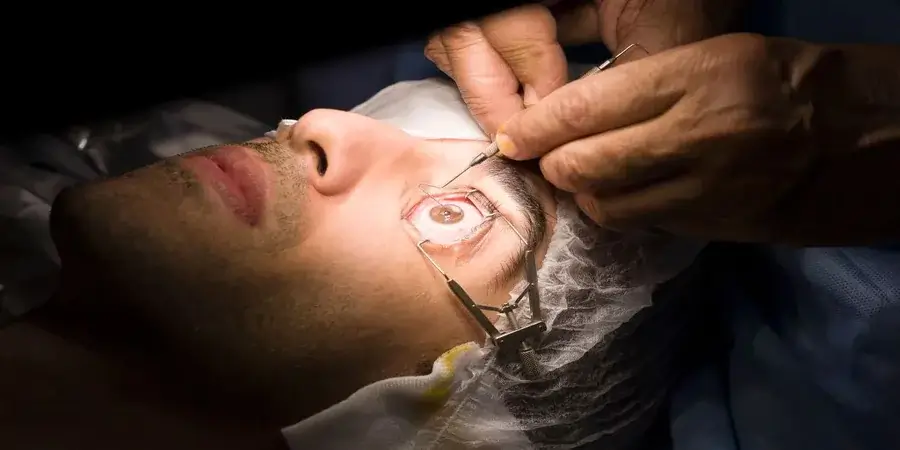After a few years where body positivity was king online, diet culture is back on the rise. From the popularity of 90s and early 2000s throwbacks, bringing with it the idolization of low-rise jeans and heroin chic supermodels, to the resurgence of concerning #proana, #thinspiration, and #skinnytok content reappearing on young people’s social media, body image and beauty standards have taken a dramatic backslide in recent years.
And while we’ve always been subject to a barrage of wellness and diet advice, fitness inspiration, and being told that thinner bodies are the pinnacle of beauty, this resurgence of dangerously thin bodies is highly concerning, particularly for the effect it will have on younger people with unvetted access to the internet. But what are the signs that someone in your life is developing disordered eating, and how can you help if you start to notice red flags?
What is Considered Disordered Eating?
Eating disorders are categorized as any unhealthy attitude towards food. This includes, but is not limited to, overeating, undereating, purging, and even unhealthy approaches to exercise or medication use. Basically, it’s an overwhelming obsession with body weight and is a mental health condition that can lead to dramatic and devastating physical illness.
Many people who are experiencing a pattern of disordered eating find it difficult to think about much else. Their food intake and body weight become such an all-encompassing concern that other parts of their life pale in comparison. They will often obsessively calorie count, may have aversions to certain foods, and may set strict routines around eating and exercising that begin to impact their abilities to complete other tasks.
How to Identify an Emerging Eating Disorder
Eating disorders are complex mental health conditions. As with any mental health issue, eating disorders don’t discriminate and can impact any person at any time, regardless of age, gender, or background. They often develop gradually, with more and more disordered eating patterns creeping into their daily routine. It can be hard to spot early, but an attentive friend or family member may be able to notice signs early and jump in to help before it goes too far.

Some common signs and symptoms that someone may be developing an eating disorder include:
Changes in Eating Habits
If you know someone who has suddenly started skipping meals, refusing to eat entire food groups without specific medical advice, or following a strict and restrictive diet regimen, this may be an early sign of a developing eating disorder. Even things like cutting food into small pieces and eating slowly to disguise how little they’re eating can be a way someone may try to disguise their eating disorder.
It can be difficult to discern the difference between someone developing an eating disorder from someone who has been sucked into online diet culture and is just trying out the newest fad. Keeping a supportive eye on this person, looking out for any other signs, or sitting with them and having a frank discussion may help if you have concerns for their health and safety.
Noticable Weight Changes
Noticable weight changes are a pretty obvious sign that something may be off, particularly if it’s sudden and drastic. Unless this person is undergoing medically supported weight loss treatments, like having undergone gastric surgery or beginning to take weight loss drugs like Ozempic or Mounjaro, a sudden and drastic reduction in body weight may be a sign of dangerous health practices.
Keep in mind, however, that not all eating disorders may result in drastic weight loss. Many people who are struggling with disordered eating may be able to maintain a “normal” body weight, and other eating disorders may cause the person to suddenly gain a dangerous amount of weight, like those living with binge eating disorders.
Social Isolation and Withdrawal
Many of the ways that we socialize are centered on food and drink. Going out for brunch or dinner, or catching up with friends for a few drinks, are some of the most common ways that people engage with their friendship groups. People with eating disorders may often try to avoid eating or drinking in front of people to avoid raising questions about their new habits.
If someone who previously attended events enthusiastically is suddenly refusing, withdrawing, or isolating themselves, this could be a sign that something is wrong. Isolation is a common coping mechanism and can be one of the most dangerous symptoms, as it removes the person from their support networks. Make sure to reach out and check in with someone whose pattern of behavior suddenly changes in this way.
Emotional and Physical Health Changes
People living with an eating disorder may begin presenting signs of deteriorating physical and emotional health. Things like fatigue, dizziness, digestive issues, mood swings, or irritability can be physical symptoms of malnutrition or the emotional toll and distress caused by the disorder. If you suspect a woman in your life may be struggling with an eating disorder, she may also experience anovulation, a condition in which the ovaries stop releasing eggs, meaning she no longer menstruates.
These kinds of signs and symptoms may be difficult to notice, as they often require the person living with the disorder to be honest about their physical health, and so much of an eating disorder is hidden and suppressed from those around them. Maintaining open and honest communication with loved ones can help foster supportive environments, allowing them to feel safer being vulnerable and opening up about their health struggles.
Understanding the Bigger Picture
If you’re interested in learning more about how to support individuals with eating disorders, consider exploring programs like an online master’s in clinical mental health counseling. These programs provide deeper insight into mental health conditions and offer the skills needed to support others in a professional capacity.
Recognizing an eating disorder early can make a big difference in someone’s recovery journey. While it’s not your job to diagnose or fix the issue, being a caring, consistent presence can provide the support your friend needs to seek help. Trust your instincts, educate yourself, and remember that showing up with empathy is one of the most powerful things you can do.















